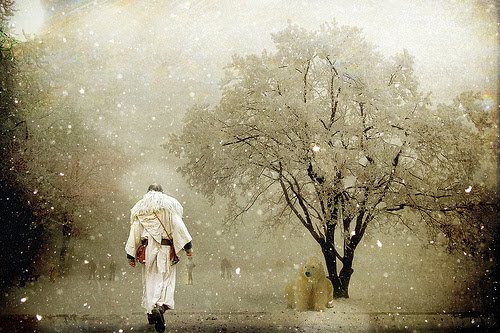Dreams vs Goals
Wouldn't it be great to win the lottery? Or sell a billion books? Or have one of your titles hit the #1 spot on the New York Times Bestseller list?
These are
dreams.
Dean Wesley Smith defines a dream as follows:
A DREAM is an object of desire over which you do not have direct control.
That's a paraphrase.
A GOAL is an object of desire over which you DO HAVE direct control.
This is Dean's example:
Dream: Winning the lottery.
Goal: Buying a lottery ticket every week.
Just because you buy a lottery ticket every week doesn't mean you'll win the lottery, but it's a course of action that will make achieving your dream more likely. And if you
don't buy lottery tickets you are guaranteed not to win the lottery.
You have 100% control over whether you buy a lottery ticket each week. You have zero control over whether you'll win the lottery. There are no guarantees. You may win the lottery, you may not, but you're doing something to make your dream more likely to come true.
Goals And The Self-Published Writer
I think all new writers have a similar dream. They would like to, one day, be able to pay for all their wants and needs with the money their writing generates.
Before we look at what goals will bring us to that place let's look at the entrance requirements, the cost of the dream, what kind of person will be able to achieve it.
Dean Wesley Smith: What it takes to be a professional writer
Here's Dean's list of qualities:
1) Determination bordering on psychotic.
2) The ability to keep standing back up and going on when something knocks you down.
3) The ability to ignore the negative from all those around you, especially family and friends.
4) The hunger to keep learning writing craft and the knowledge you will never be good enough.
5) Fearlessness.
6) The desire to learn business.
7) The ability to control your own time and what comes at you.
Got it? Feeling that fearless psychotic determination well up inside you? Great! Now let's set some goals.
Goal One/Path One
Figure out how much material (short stories, novels, flash fiction, whatever) you could, reasonably, create in a year. From that, guesstimate sales.
1. Reconnoiter and inventory: What are you doing now
Each day for a week (Dean says 3 or 4 days) keep a log and record:
- How much time you spent writing
- The time of day
- Where you wrote
- Your mental state (e.g., Were you too tired to write until you had your coffee?)
Also record:
- How much time you spent reading.
- How much time you spent doing research
- How much time you spend on Twitter, Facebook, YouTube, etc. (That's my suggestion.)
Folks, this is an excellent idea! I set goals for myself every Sunday and, this week,
this is my goal. For the next 7 days I'm going to record how I spend my time.
By the way, I want to do the recording for 7 days rather than 3 or 4 because my schedule changes quite a bit on the weekends. For me, it would be much more representative if I looked at the amount I work per week rather than per day.
Okay, that's the first step.
These next two steps don't have anything to do with the time of day your wrote at or where you wrote or what your mental state was like, that's for you, and it's (I think) valuable information.
I'm going to start a running log.
Today, right after I finish publishing this post, I'm going to get a new notebook and make it my recording notebook.
2. Figure out your words per hour
This is what you'll do next Sunday. Take the data you've gleaned from (1) and figure out, on average, how many words you write in an hour.
3. Figure out how much you could write in a week
Take the data from (1) and (2) and figure out, on average, how many words you write a day. This will help you figure out how many books you'll be able to publish in a year. Of course you could do this from your words per week (words per week * 52 = words per year) but math is fun! :-)
An example:
Let's say you dutifully do your recording and one week from now have the following scribbled in your notebook:
The Data:
Writing time (time spend writing, not editing or researching):
Sunday: 2 hours; 1,500 words
Monday: 1 hour; 800 words
Tuesday: 5 hours; 3,000 words
Wednesday: half an hour; 500 words
Thursday: 3 hours; 700 words
Friday: 2.5 hours; 2,000 words
Saturday: None
Total writing hours that week:
2 + 1 + 5 + 0.5 + 3 + 2.5 + 0 = 14
Total words written:
1,500 + 800 + 3,000 + 500 + 700 + 2,000 + 0 = 8,500
First step: Calculate, on average, how many hours you wrote per day
14 / 7 = 2
Average writing hours per day: 2
Second step: Calculate, on average, how many words you wrote per hour.
8,500/14 = (about) 607
Average words written per hour: 607
Third step: Calculate, on average, how many words you wrote per day
607 * 2 = 1,212
Average words written per day: 1,212
Fourth step: Calculate, on average, how many words you'll write in a year
You could do this two ways:
8,500 words per week * 52 weeks = 442,000 per year
1,212 * 365 days = 442,380 words per year = (about) 442,000 words
Fifth step: Calculate how many novels you can write in a year
Let's say you want to write novels that are about 80,000 words long.
442,000 / 80,000 = 5.525
Let me say, wow! If a person writes only 1,212 words a day for a year, you'll be able to publish 5 novels that year? (I just did the math again.)
Yep!
I read Dean's figures but it didn't sink in until just now. That's amazing! Over NaNoWriMo I discovered I could write 1,500 words an hour without too much difficulty. 1,500 words a day, one hour, and I'd have over 5 books at the end of the year!
Huh.
Well, editing is where my time goes. For every hour of writing I spend 4 editing the darn thing (writers can have a love-hate relationship with their manuscripts. A lot like teenagers that way ...)
Goal Two/Path Two
Figure out how much money you need to live and then figure out, from that, how much material (novels, short stories, whatever) you'd need to create in a year.
Let's say (this is the number Dean uses) you need to make 50,000 dollars a year from your writing. There are two ways of doing this, the traditional publishing route and the independent publishing route. Let's take the traditional route first.
Traditional Publishing Route
What can a new author get for a first book, or for their first few books? It's very difficult to judge, but let's say $5,000 per book. Perhaps the first book would be less, perhaps some books would be more, but let's say $5,000.
At $5,000 per book you'd have to sell 10 books a year to make $50,000.
That sounds discouraging and I don't mean it to. At first no publisher will give your book a big print run but as you continue to sell more people will want to read your books, you'll get larger print runs and so publishers will give you larger advances.
It just takes time.
Independent Publishing Route
Dean says that, at first, an indie author would be lucky to sell 25 copies a month. So, let's say they're lucky and that the novels are selling for, as Dean suggests, $5.99. That means (if they are being sold on Amazon) the author will get 70% or $4.19 (let's say $4).
Each month our indie author will make 4 * 25 = 100 per month or 100 * 12 = 1,200 per year. That means they'd have to have (50,000/1,200=41.67) 42 books in the Amazon store to make $50,000 per year!
Of course 42 books is entirely doable, but not in a year!
Which, I think, is Dean's point.
So, how long would it take you to earn $50,000 per year if you wrote 5 novels per year? That's easy: 42/5 = 8.4. It would take around 8 years for an indie author to make $50,000 per year.
Actually, that's not bad. That's doable! 25 sales per book per month isn't much and many indie books are priced at $5.99 these days.
Wow. I think this was, for me, Dean's most awesome post--and there've been quite a few!
Focus On What You Control
There are no guarantees. Your independently published book might sell less than 25 copies a month.
Significantly less. Your traditionally published book might under-perform and your publisher might drop you (if memory serves, this happened to Laurell K. Hamilton with her first book Nightseer).
There's a lot we don't control but there's two things we do:
- (T & I) How much you write.
- (T) How many manuscripts you send out.
- (I) How many books (short stories, etc) you publish.
- (I) The quality of your published books (blurbs, cover art, formatting) and where the book is sold (the markets, whether you have a print copy, audiobook, etc).
Indie Authors: Focus on selling your work in as many forms as you can
Dean stresses, and for what it's worth I agree wholeheartedly, that it's a good idea to make your work available in as many formats as possible (ebook, POD, audiobook). Dean writes:
You control the attempt to sell. You don’t control
the buying or not buying, but you control the attempt to sell.
I think that, even if an author doesn't sell a lot of audiobooks, it's worth doing for the exposure to another market. It is one more way for you to get discovered by readers/listeners. That said, producing an audiobook can be expensive, but you can do it yourself. (See:
How To Record Your Own Audiobook: Setting Up A Home Studio)
Dean warns against exclusivity and that's an old debate, one I've written about previously a few times. (See:
Does Amazon KDP Select Drive Away True Fans? and
Amazon's KDP Select Program Has A Lot To Offer New Writers, But What About Established Ones?)
That's just a sample of Dean's advice. I urge you to read his article:
The New World of Publishing: Goals and Dreams.
Other links you might like:
-
The Structure Of Short Stories: The Elevator Pitch Version
-
Where Ideas Come From And The Conspiracy Against Nothingness
-
The Structure Of Short Stories
Photo credit: "
Blue Darkness Across A Beach" by
A Guy Taking Pictures under
Creative Commons Attribution 2.0.










